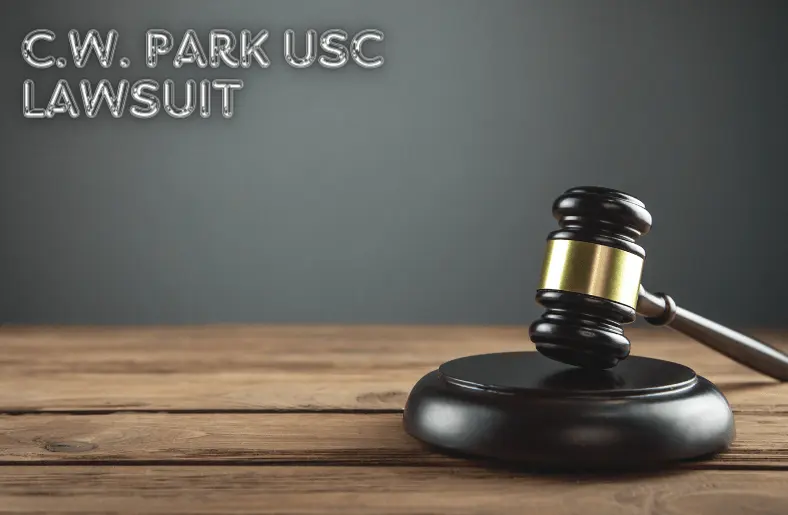In the complex landscape of academic disputes, the C.W. Park USC lawsuit emerges as a pivotal case under intense scrutiny. This legal confrontation between Dr. C.W. Park and the University of Southern California spans allegations ranging from academic misconduct to accusations of discrimination and retaliation. Delving into these intricate facets unveils a narrative where each assertion and counterclaim intertwines with broader implications. From allegations to investigations, this case epitomizes the challenges facing academic institutions in maintaining integrity and navigating disputes with faculty members.
Background of the Case of C.W. Park USC Lawsuit
Dr. C.W. Park’s tenure at USC began positively but quickly turned controversial. Initially praised for his marketing expertise upon joining USC’s Marshall School of Business, allegations soon surfaced, accusing him of research misconduct and discrimination. These claims, involving data manipulation and allegations of bias based on race and gender, sparked a legal dispute revealing institutional weaknesses. The ensuing lawsuit illuminated systemic issues within USC’s academic framework and administrative oversight. It raised concerns about academic integrity and equitable treatment within the university. As the case progressed, it garnered widespread attention, prompting scrutiny of USC’s policies on tenure, research ethics, and diversity. The lawsuit’s outcome could significantly impact how universities uphold ethical standards and create inclusive environments.
Key Allegations In C.W. Park USC Lawsuit
Initially, Dr. C.W. Park accused USC of academic misconduct. Subsequently, allegations surfaced regarding discriminatory practices. Dr. Park claimed retaliation after reporting issues. The lawsuit raised concerns over research integrity and fairness. These accusations questioned USC’s institutional practices. Moreover, media coverage intensified public scrutiny. Additionally, USC’s response emphasized procedural fairness. Furthermore, the allegations highlighted challenges in maintaining academic integrity. Consequently, discussions ensued on institutional accountability and standards. Overall, the outcome could significantly influence future policies and academic norms.
Involvement of Students and Faculty
Initially, students and faculty voiced concerns. Allegations ranged from misconduct to discrimination. Specific accusations included research integrity breaches. Additionally, students reported incidents of harassment. Faculty members documented discriminatory practices. Moreover, media coverage heightened public awareness. Consequently, discussions focused on institutional accountability. Furthermore, USC’s response emphasized procedural reviews. As a result, scrutiny intensified over university policies. Overall, this raised questions about academic environments.
Impact on the University
Initially, the lawsuit cast a significant shadow over USC, raising serious concerns. Allegations against faculty members intensified scrutiny and media coverage. Consequently, USC faced considerable reputational challenges, prompting discussions about institutional integrity and academic standards. Students, alumni, and faculty members alike expressed profound concerns about the university’s image and its handling of the situation. As a result, faculty morale was notably affected, and administrative responses became pivotal in addressing public perception. Furthermore, the university underwent a thorough review of its policies and procedures to mitigate potential damage. Overall, the impact of the lawsuit on USC was profound and far-reaching, influencing various aspects of campus life and administration.
Legal Proceedings and Developments
Initially, legal proceedings began with Dr. Park’s filing of allegations against USC. Subsequently, USC responded with a detailed legal defense, triggering a series of hearings. Evidence was presented, including witness testimonies and documentation, supporting each party’s claims. Media coverage heightened public interest, shedding light on the complexities of the case. Moreover, both sides engaged in negotiations, seeking potential resolutions. Throughout, procedural fairness remained a critical focal point, ensuring transparency and accountability. As time progressed, the legal process unfolded, navigating through various stages of litigation. Ultimately, the developments underscored the importance of due process and legal scrutiny in resolving disputes effectively.
Broader Implications
Examining broader implications, the case highlights systemic issues within academia. Consequently, it prompts discussions on academic integrity and institutional governance. Moreover, it raises concerns about diversity and inclusion practices across educational settings. Furthermore, it underscores the need for robust policies to safeguard faculty rights and ensure fair treatment. As a result, it influences perceptions of higher education institutions’ transparency and accountability. Additionally, it encourages reforms in tenure and employment practices to uphold ethical standards. Ultimately, it calls for a reevaluation of academic institutions’ roles in fostering a supportive and equitable environment.
Conclusion about C.W. Park USC Lawsuit
In conclusion, the C.W. Park USC lawsuit highlights critical issues in academia. Overall, it underscores the importance of academic integrity and tenure protections. Additionally, it emphasizes the need for fair treatment and transparency in university governance. Moving forward, it calls for reforms to strengthen policies safeguarding faculty rights. Ultimately, it prompts reflections on the ethical responsibilities of educational institutions. Consequently, it encourages ongoing dialogue and improvements in diversity and inclusion efforts. In summary, the case serves as a catalyst for positive changes in higher education practices.




